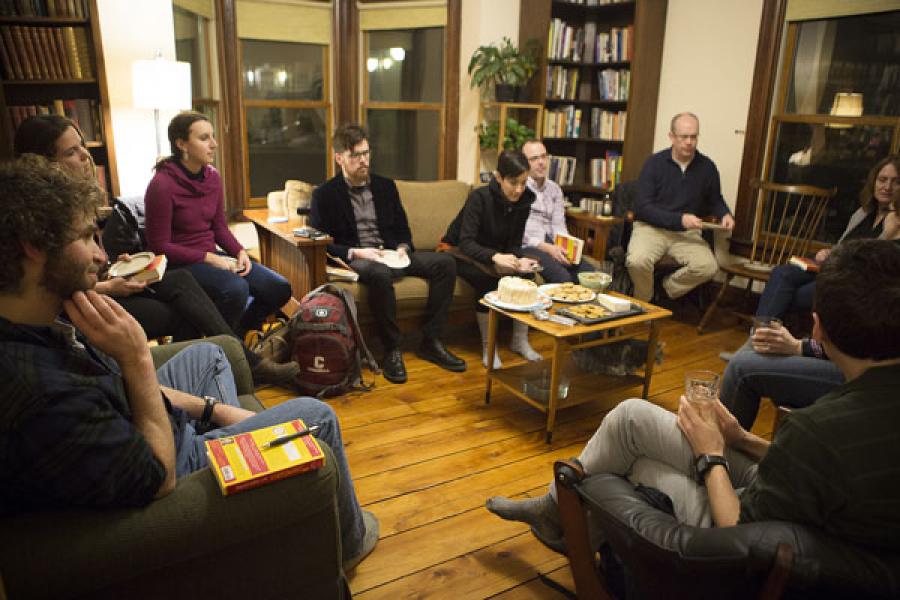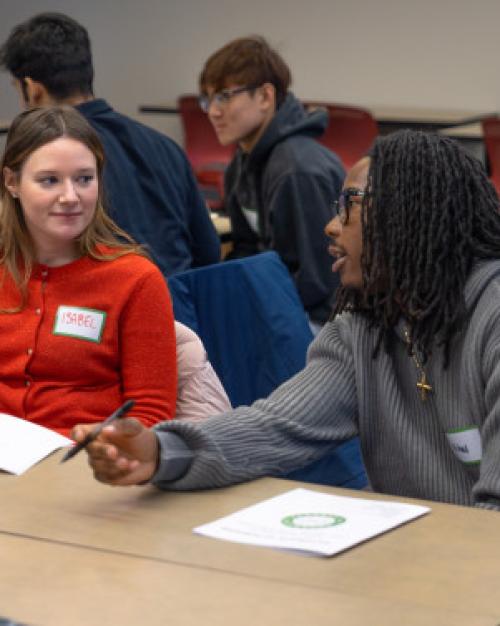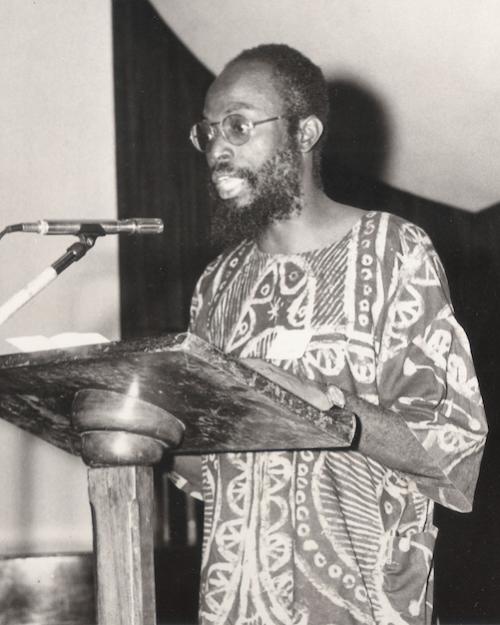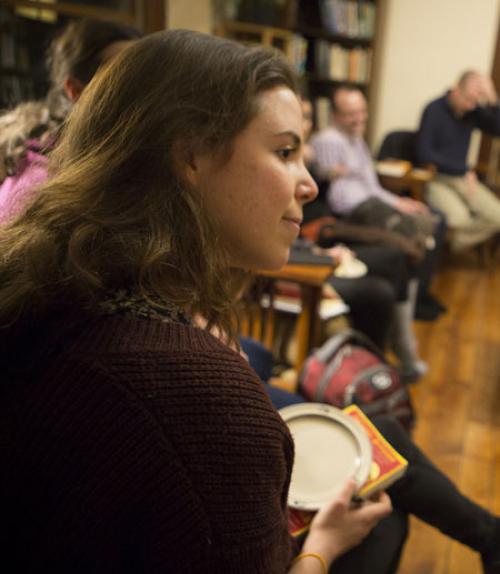“My name’s Ishmael, what’s yours?” -- or would “Call me Ishmael” better open a narrative about whaling? Tone, diction, style: these are the kinds of questions Cornell’s Historians Are Writers! (HAW) grapple with in their meetings. The grappling is the more difficult because there’s no one right answer to such questions, so experimentation, exploration and creativity serve as the group’s guideposts.
HAW members gather about every three weeks in someone’s home, in an informal, friendly atmosphere, says Joe Giacomelli, the current coordinator of the group and a graduate student in the field of history. At the meetings participants discuss books they have read, which vary widely and include history, memoir, fiction, creative nonfiction, and graphic novels.
For the 2017 spring semester, HAW will read a characteristically eclectic series of works: “The Sympathizer by Viet Thanh Nguyen, “Henry IV” by William Shakespeare, and “The Empire of Necessity” by Greg Grandin. The book discussions are free-ranging, says Giacomelli, but are always brought back to what can be learned about writing. Sometimes visiting scholars are invited to discuss their works-in-progress.
Founded in 2007, HAW is based in the history department and mostly consists of graduate students, although anyone is welcome to join and members represent a wide variety of fields, such as anthropology, science & technology studies and English. They share a belief that producing good books depends on good writing as well as making a convincing argument.
“The group really cuts across details of what individuals are working on in their research in order to have bigger conversations about commonalities between projects and the array of resources available to writers,” says Laura Martin MS ’10, PhD ’15, who was finishing her master’s in natural resources when she got involved.
Martin says being a member of the group changed the type of scholarship she pursues. “I’ve come to see decisions about style and audience as equally as important as argumentation and sources; I view the writing process as inseparable from the research,” she says. “What we take away from a work of history is not just the new facts uncovered by the historian, but also the argumentation made through the narrative or analytic writing.”
Creating Community
HAW members say the group creates a space where enthusiasm for regular work gets renewed and refreshed. “It’s an opportunity to get back a passion for reading, which can be lost when you’re reading only for your degree. Reading for pleasure is not only refreshing, it gives you a completely new perspective to bring back to your scholarly work,” says Aaron Sachs, professor of history and HAW’s faculty mentor.
Members of HAW meet at the home of Professor Aaron Sachs. Credit: Lindsay France/University Photography
Because the usual competition with classmates gets stripped away -- everyone is reading new kinds of writing in which they have no expertise – Sachs says HAW creates “an incredibly supportive, humane space. Making yourself vulnerable, openly asking for help – it’s a support group in the best possible way, where people can talk honestly about their struggles,” he says.
Founding member Heather Furnas PhD ’14 describes HAW as “a caring community, a very tight knit group that supported writing and provided feedback and criticism and cheering: a home. I don’t know if I’d have gotten through grad school without it.”
Once a semester HAW holds a writing workshop, for which members submit a short piece of writing — a poem, a grant application, a dissertation excerpt, or perhaps a seminar paper — for which they want constructive feedback.
Daegan Miller MA ’09, PhD ’13, who is credited with sending out the “rallying call” that originally launched the group, says HAW members were the most supportive and generous critics he’s ever had. “People would tear my work to shreds in ways that were extremely helpful, meeting my manuscript on its own terms, then helping that manuscript fulfill those terms. It gave me a sense of freedom and exploration to chase writing in this way,” he says.
At the end of the year, the group hosts a “History Slam,” showcasing short pieces and works-in-progress. After the first few readings, the format is open mic, giving participants the chance to try out new approaches and ideas. In 2014, the event was part of Spring Writes, the Finger Lakes Literary Festival and held at Buffalo Street Books. This year’s event will be held as part of HAW’s first conference on creative academic writing, May 13.
The slam is revealing because it allows authors to hear their work read aloud, says Giacomelli. “It forces you to focus at the sentence level on rhythm, the use of suspense. And it’s really fun.”
A Ripple Effect
Sachs began to see HAW’s impact when students who were deeply engaged with the group began winning Buttrick-Crippen Fellowships from the Knight Writing Institute, “which previously only English majors typically won,” says Sachs. One of those was Martin.
Sachs also began to get requests from members for recommendations for writing jobs in Writing in the Disciplines, positions usually filled by English majors. “It’s been really gratifying to see people taken seriously for writing jobs,” says Sachs. “It has been striking to me how HAW has expanded the job possibilities for people.”
Furnas, who was a first generation college student, agrees. “HAW helped me find my way,” she says. “It let me find what I wanted to do with my graduate career and showed me how my skills could be used beyond graduate school.”
Amy Kohout MA '11, PhD '15, assistant professor of history at Colorado College, says that HAW was “wonderfully generative” for her: a piece she read at HAW’s first History Slam in 2009 turned into her first publication, and because of HAW she joined the editorial team of The Appendix, a journal of narrative and experimental history that published some pieces workshopped at HAW
There’s now a real hunger for the type of historical writing being developed in HAW, adds Miller, pointing to the number of cutting-edge intellectual magazines whose editors want non-standard academic writing.
For Martin, the impact of HAW has reached well beyond her time at Cornell. Because it made her appreciate the importance of academic communities that include both faculty and graduate students, she founded a working group at Harvard modeled on HAW She also continues to exchange reading and writing with HAW friends. “I think of it as my primary intellectual community,” she says.





